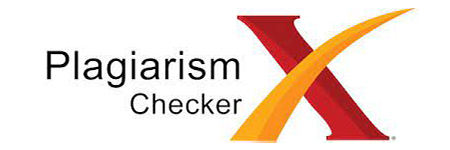Analisis Efektivitas Program Insentif Pajak terhadap Daya Saing UMKM
DOI:
https://doi.org/10.70716/pjmr.v1i5.297Keywords:
Tax Incentives, Competitiveness, MSMEs, Tax Compliance, Fiscal PolicyAbstract
Tax incentive programs are one of the fiscal policies implemented by the government to support the growth of Micro, Small, and Medium Enterprises (MSMEs) in Indonesia. This study aims to analyze the effectiveness of tax incentive programs in enhancing MSMEs’ competitiveness, particularly in terms of business sustainability, productivity improvement, and market expansion. The research method employed is a descriptive quantitative approach by collecting data through questionnaires and interviews with MSME actors registered in [region name]. Data analysis was conducted using simple linear regression to determine the influence of tax incentives on MSME competitiveness indicators. The results indicate that tax incentive programs have a positive and significant impact on increasing MSME competitiveness. Incentives such as reduced tax rates and deferred payments have been proven to provide wider financial space for MSMEs to increase production capacity, improve product quality, and expand marketing networks. However, the effectiveness of this program still faces challenges, such as the low level of MSME taxpayers’ understanding of tax regulations and limited access to information regarding tax incentives. In conclusion, tax incentive programs are effective in improving MSME competitiveness but must be accompanied by efforts to increase tax literacy and more intensive assistance from tax authorities. The recommendation of this study is the need for synergy between the government, tax consultants, and financial institutions to create a highly competitive MSME ecosystem in the globalization era.
Downloads
References
Fitriani, D. (2022). Literasi perpajakan dan dampaknya terhadap pemanfaatan insentif fiskal pada UMKM. Jurnal Perpajakan Indonesia, 15(2), 113–125.
Hermawan, A. (2021). Akses informasi digital dan implementasi kebijakan fiskal pada UMKM. Jurnal Ekonomi dan Kebijakan Publik, 10(3), 201–214.
Nugroho, T., & Wibowo, H. (2020). Dampak kebijakan fiskal terhadap daya saing UMKM di Indonesia. Jurnal Kebijakan Ekonomi, 8(1), 45–59.
Pratama, R. (2023). Sinergi kebijakan fiskal dan lembaga keuangan dalam penguatan daya saing UMKM. Jurnal Ekonomi Pembangunan, 14(1), 33–47.
Rahman, A., & Lestari, I. (2021). Inovasi dan kebijakan fiskal: Studi pada UMKM pasca pandemi. Jurnal Manajemen dan Bisnis, 12(4), 221–235.
Santoso, B. (2021). Insentif pajak dan keberlanjutan usaha UMKM di Indonesia. Jurnal Akuntansi dan Pajak, 22(3), 145–158.
Siahaan, M. (2020). Perilaku fiskal dan kepatuhan wajib pajak dalam perspektif insentif. Jurnal Perpajakan dan Kebijakan, 9(2), 77–89.
Wahyudi, F. (2022). Integrasi kebijakan fiskal dengan pemberdayaan UMKM. Jurnal Ekonomi Mikro, 11(2), 99–112.
Creswell, J. W. (2014). Research design: Qualitative, quantitative, and mixed methods approaches. Sage publications.
Denzin, N. K. (2017). The research act: A theoretical introduction to sociological methods. Routledge.
Ghozali, I. (2021). Aplikasi analisis multivariate dengan program IBM SPSS 26. Universitas Diponegoro.
Hair, J. F., Black, W. C., Babin, B. J., & Anderson, R. E. (2019). Multivariate data analysis (8th ed.). Cengage Learning.
Rahayu, S., & Setiawan, A. (2019). The influence of tax policy on taxpayer compliance in Indonesia. Journal of Accounting and Taxation, 11(5), 85–93. https://doi.org/10.5897/JAT2019.0352
Sugiyono. (2019). Metode penelitian kuantitatif, kualitatif, dan R&D. Alfabeta.
Suryanto, T. (2020). Effect of taxation policy on small business performance: Evidence from Indonesia. International Journal of Economics and Business Administration, 8(1), 150–162. https://doi.org/10.35808/ijeba/543
Hidayat, R., & Rahmawati, N. (2019). The effect of tax knowledge on taxpayers’ compliance of micro, small, and medium enterprises. Journal of Taxation Studies, 12(2), 145–158.
Kementerian Koperasi dan UKM RI. (2022). Laporan tahunan UMKM 2022. Jakarta: Kementerian Koperasi dan UKM.
Pratama, I. P., & Dewi, L. S. (2020). Analisis pemanfaatan insentif pajak UMKM di era pandemi Covid-19. Jurnal Akuntansi dan Pajak, 21(1), 33–42.
Purnamasari, E., & Hidayat, T. (2021). Challenges of MSMEs in utilizing tax incentives: A case study in Indonesia. International Journal of Economics and Business, 9(3), 201–210.
Santoso, A., & Nugroho, B. (2021). Tax incentives and the competitiveness of small and medium enterprises in Indonesia. Asian Journal of Business and Management, 13(4), 55–67.
Suryanto, E. (2020). Integrating tax policy and financial access to strengthen MSMEs competitiveness. Journal of Development Economics, 8(2), 77–89.
Wibowo, R., & Sulistyowati, N. (2020). The effectiveness of tax incentive programs on SMEs performance. Indonesian Journal of Tax and Accounting, 5(1), 11–25.
Yuliana, M. (2022). The role of tax literacy in optimizing tax incentive utilization among MSMEs. Journal of Fiscal Policy, 14(2), 89–102.
Downloads
Published
How to Cite
Issue
Section
License
Copyright (c) 2025 Mardian Utari, Laila Syakila Salsabila, Maemunah

This work is licensed under a Creative Commons Attribution-ShareAlike 4.0 International License.











